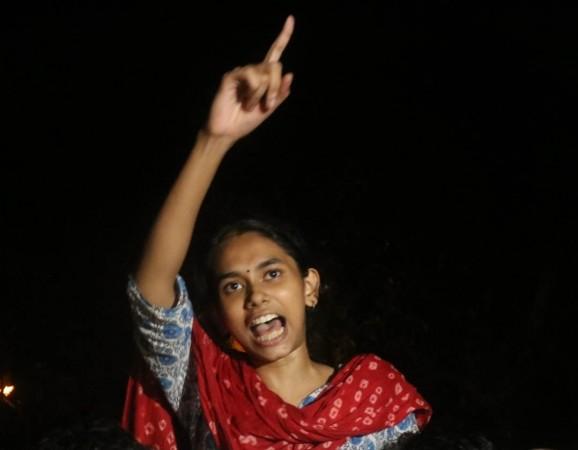With the police naming Aishe Ghosh among the suspects behind the January 5 JNU campus violence, parallels are being drawn between former JNUSU president Kanhaiya Kumar and the present president.

The current situation in JNU is the latest in a series of controversial incidents or developments that have accorded the university with a notoriety of sorts. It was the anti-national sloganeering of 2016 that forever stamped the campus' reputation as a crucible of anti-national sentiment, in the public eye.
When Delhi Police recently announced the details of nine suspects involved in the campus violence, it included JNUSU president Ghosh -- the development had a startling resemblance to events of 2016.
It all began on February 9, 2016, when some JNU students organised a protest on campus to mark the third anniversary of Afzal Guru, who was hanged in connection with the 2001 Parliament attack. Despite a last-minute withdrawal of permission by the varsity authorities, the protesters went ahead. Matters took a turn for the worse, when anti-national slogans were raised at the protest meet.
The incident propelled the then JNUSU president Kanhaiya Kumar to the national stage. He contested and lost the parliamentary elections from Bihar in 2019.
With the Delhi Police naming Aishe Ghosh as a suspect in the January violence on campus, the spotlight has turned on her.
But the youngster appears unfazed by the development. "Yes, I was in the video. But I was not inciting violence or leading the mob. Rather I was trying to pacify them," she said.
"As a leader of the JNUSU, it's my duty to be at such spots to make sure peace and harmony remains in the campus," she added.
The statement echoes the stand taken by Kanhaiya three years ago when he accepted his presence in the controversial video, but had claimed that his slogans were taken out of context.















